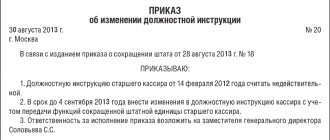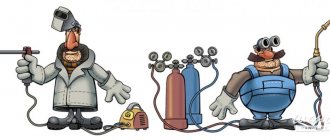Specializations of technical directors
Construction Director
The functions of a technical director in the construction industry include managing the operation of engineering systems, maintaining equipment, as well as monitoring the implementation of a construction project and negotiating with the customer and investors (often jointly with the general director).
IT director
Such a manager is responsible for creating software, IT projects, applications, platforms. In other words, he manages every stage of product development and coordinates the activities of programmers, designers, administrators, testers, technical writers and other specialists. The main tasks of the technical director also include organizing the maintenance of technical and design documentation and communicating with customers.
Production technical director
Such a specialist is usually called a production director. He is responsible for modernizing and maintaining the functionality of production processes at the enterprise. The director also thinks through ways of technical development of the company, negotiates with suppliers, ensures safety at work and timely repair of equipment.
What does a technical director have the right to - basic rights
In accordance with the provisions of the instructions, this employee has the rights:
1. Give orders to his subordinates in the enterprise: decrees on issues within the scope of his duties at work.
2. Send proposals to the company for: adoption of a method of suppression: “disciplinary action against the employee.” And also for a company that violated safety rules.
3. Has the right to receive information and send it to create a draft management decision that relates to his work.
4. Has the right to tell the plant management about all errors identified during operations.
5. May require the management of the enterprise to provide organizational and technical conditions important for the application of its obligations.
6. May require material from various structures of the enterprise to perform any tasks within their competence.
This is not the entire list of basic rules. Find out more from your general manager and the sample job description. In addition, you also need to know the responsibilities of an employee with this qualification.
Responsibility of the technical director
The CTO is primarily responsible for perjury against colleagues and senior management. Inaccurate information can lead to material damage and loss of management in the enterprise in accordance with the provisions of the job description.
He is also responsible for non-compliance with the regulations on business papers and for all actions that contradict the rule established in the company's regulations.
Responsibilities of the technical director
The profession of a technical director involves working with technology in a broad sense - in the field of production, information technology or telecommunications. The following tasks fall on the shoulders of the specialist:
- project management;
- coordination of team actions;
- conducting negotiations with the customer;
- optimization of production processes;
- preparation of design and technical documentation.
More specific job responsibilities of a technical director depend on his specialization and the individual needs of the company. As a rule, a specialist does not have to resolve issues related to finances and product promotion - this is the responsibility of the general or commercial director.
Deputy skills and abilities
Deputy technical director is an indispensable position in the work of any enterprise.
In addition to the fact that in the absence of the technical director himself he performs his functional duties, his job responsibilities are considered to be:
- Development of a plan for the implementation of preventive maintenance work.
- Monitoring the performance of labor activities of working personnel.
- Development of project documentation and further submission for approval to senior management.
- Purchase of components for production needs.
- Conducting lectures on fire safety and labor protection in particular.
A person who has a higher education and work experience in management positions of at least 5 years is appointed to the position of deputy technical director. Education must be technical.
Modern quality management systems are discussed in the following video tutorial:
The technical director of an enterprise is the most important figure who oversees all production processes and manages the technical part of its work. Almost no organization operating in the fields of production, construction, information technology, television and others that use complex technical systems can do without it.
The person who holds this position is part of the management team of the enterprise.
He has clearly defined rights and responsibilities enshrined in the job description. As a rule, he reports directly to the chief executive of the company.
Read more Registration of a copy of the work book from 2020
The functionality of a technical director depends on the areas of work of the enterprise, while his main tasks are to manage the technical development of the company, control the implementation of technical solutions, analyze their effectiveness and advise employees on technical issues.
Based on the tasks that the technical manager has to solve, the requirements for him are determined. Thus, only a person who is technically savvy, has higher education and work experience, and understands the specifics of work processes can take this position. In addition, he must be able to manage people and negotiate effectively.
The position of technical director is highly paid. In different areas, the salary of a given specialist can vary between 50-250 thousand rubles, while specialists working in the IT field can earn even more.
Requirements for a technical director
Most often, the requirements for a technical director include the following main points:
- higher specialized education;
- leadership skills and HR management experience;
- ability to maintain design and technical documentation;
- Very often, experience as a technical director is required (usually from 1 year).
Additionally, the technical director may be required to know a foreign language, have skills in working in MS Project, have a driver’s license, and know the specifics of the company’s technical equipment; in IT companies - experience in developing applications and platforms, proficiency in several programming languages.
Job description
Detailed information about what exactly will be within the competence of the technical manager should be set out in the job description. This is a document that is attached to the employment contract. It contains an expanded list of duties, rights, powers and responsibilities of the employee. Compliance with the instructions is strictly mandatory.
Job descriptions will differ significantly in different areas. Obviously, a construction organization has completely different functions and requirements than a trade organization. Let's look at a sample job description for a technical director, which can be quickly adapted to the needs of a specific LLC.
General provisions
The first section contains the most formal information:
- full title of the position;
- category - “managers”;
- subordination (to the general director, meeting of founders, board of directors);
- how he is appointed to the position (by order of the general director, by decision of the board of directors);
- who performs duties during his absence;
- what he is guided by in his work (this instruction, Russian legislation, internal documents of the organization).
At the discretion of the compiler, qualification requirements can be included in this section - but not necessarily. It is assumed that if an employment contract has already been concluded with a specialist and instructions have been issued to him, he meets all qualification requirements.
Requirements for a technical director include specialized education and leadership qualities.
Job responsibilities
The key section of the instructions is job responsibilities. Here you need to indicate everything that management expects from a technical manager. Specific wording, accuracy and clarity are encouraged. Each enterprise has specifics that will be reflected in this section. Sample recommendations:
- controls the technical side of production;
- ensures uninterrupted technological cycles;
- monitors the correct operation of equipment, its optimal use and safety;
- controls product quality;
- proposes and implements measures to modernize work;
- improves technological processes;
- ensures employee training and safety;
- ensures uninterrupted connection of employee computers to the local and global networks;
- manages the work of workshops, departments, sectors (indicating their names), develops instructions and controls their implementation;
- prevents or reduces production damage to the environment.
Rights
In order for the technical manager to freely perform all the duties assigned to him, the instructions must provide him with the rights:
- give instructions and tasks to subordinates in the area of their competence;
- make proposals to management in their area of competence;
- demand execution of instructions and bring to disciplinary liability for their violation;
- demand the material and technical equipment necessary to perform official duties;
- participate in the development of projects, plans, decisions related to the work of the technical director.
In this section there is no need to mention standard rights from the Labor Code - only those that are directly related to work.
Programmers, engineers, and developers report to the technical director.
Responsibility
The technical director is an employee from management, so his responsibility is quite high. The section indicates everything for which the employee is responsible:
- material and technical base;
- reliability of data provided to management and subordinates;
- compliance with laws and internal regulations;
- professionalism and conscientious performance of duties;
- safety regulations;
- labor discipline.
How to become a technical director
To become a technical director, you need, on the one hand, to be technically competent (have a specialized education, experience in the industry, understand the nuances of work processes), on the other hand, to be a leader (be able to manage people, negotiate, find a common language with customers and investors ).
For example, you can become a technical director in the field of construction or production by working as an engineer, project manager or foreman (foreman). In the IT field, a career usually begins as a programmer, develops towards a designer or software architect, and then reaches the level of management positions and top managers.
People who become directors are those who are able to establish contact between the manufacturer and the investor and calculate the company's investment policy two steps ahead - pragmatists and analysts by mentality.
What department does the technical director lead?
An order to create or cancel a technical department can only be accepted by the general director, since this department is independent and can only report to him. The Director of Technical Affairs is appointed as the chief technical officer of the company. It is he who selects personnel for his structure. The assignment of quantitative composition should come from the general director, and it will depend on the general functions of the department, as well as on the size of the company.
The director of the technical department distributes responsibilities among all service employees, based on the functioning of the company as a whole.
The functions of the technical department include:
- Technical support of the company.
- Control over the correctness of all technical decisions of the company.
- Drawing up technical documents and drawings.
- Analyze the use of equipment and identify the need for new ones.
- Preparation of strong economic justifications for the purchase of new equipment.
- Monitor tenders for the purchase of new tools and equipment.
- Commissioning of new equipment and tools.
- Controlling the transportation of new equipment.
- Ensuring proper storage of equipment in accordance with technical and fire safety standards.
- Archiving and accounting of tools and equipment.
- Control of incoming applications and subsequent distribution of already received devices;
- Monitoring all technical work carried out in the company, including third-party contractors.
- Providing preliminary inspection and subsequent installation of technical equipment.
- Introduction to use of new tools.
- Obtaining permits to install new equipment.
- Correct calculation of the required equipment and tools.
- Approval of incoming applications from company employees.
- Drawing up long-term plans for repair and restoration work.
- Identifying tools and equipment that may soon fail.
- Coordination of plans for the department's work in the future.
- Drawing up a long-term plan for repair work.
- Controlling electricity costs.
- Drawing up and conducting explanatory events aimed at explaining safety precautions, as well as energy savings.
- Explanation of operating standards for complex technical equipment.
- Ensuring safety standards and practices throughout the company.
- Maintaining records of all technical documents.
- Tracking missing information that is required by company employees.
- Monitoring the correct implementation of technical department plans.
- Conducting consultations on individual management requests.
- Active participation in all company events.
- Drawing up and further monitoring of all technical contracts.
- Ensuring control over all installation and construction works.
Interesting figures about the position of technical director
- Technical director starts looking for vacancies at the age of over 30, but not all enterprises are ready to hire a young person who does not have sufficient life experience. And therefore, the average age of an employee specializing in technical director is from 40 to 45 years. They do not want to see representatives of the older generation in this specialty and their numerical ratio is very small, only 15%.
- Only men are ready to take on the functions of a technical director – 99%.
- Only half of the respondents said that they know English well enough - 60%, while only 10% speak a foreign language fluently.
- The vast majority have a university degree and a small percentage have two degrees.
- The position of technical director implies owning a vehicle, and therefore having a driver’s license - 93% of respondents.
Copying material without permission is permitted if there is a dofollow link to this page
Who does the technical director service interact with?
With the company’s technical departments regarding:
Income:
- outgoing requests for repair and operation of tools and equipment;
- information on proposed recommendations for the use of equipment;
- clarification of the causes of equipment malfunction.
Outgoing:
- reports on the work done and the causes of equipment malfunction;
- instructions for compliance with rules and instructions for operating equipment;
- messages about the need to add additional information to this or that equipment.
2. With the labor protection department on issues:
Income:
- information about changes in bills that relate to the technical service of the enterprise;
- expert instructions on the normal operation of the equipment and its compliance with all safety requirements.
Outgoing:
- information on compliance with all laws on labor protection at work;
- instructions for identifying methods of working with equipment that falls within the scope of the Russian Federation safety legislation.
3. With the department of organization and remuneration on issues:
Income:
- the requested advisory material;
- signed shift schedule and staffing.
4. With the economic planning department on issues:
Income:
- instructions aimed at saving money;
- conclusions on the feasibility of maintaining a technical department.
Outgoing:
- estimates for construction and installation work;
- estimates for supporting work;
- estimates for repair and adjustment work.
5. From the main one regarding questions:
Income:
- documents for disposal or write-off of obsolete equipment;
- information about the financing of the department.
Outgoing:
- lists containing a list of equipment and tools that were subject to disposal;
- lists of equipment that is not needed and can be sold as unnecessary;
- invoices for the repayment of funds for the purchase of equipment.
If the technical director is absent from his workplace for any reason, his duties are assumed by the deputy technical director.
Job responsibilities
The technical director is assigned the following job responsibilities:
2.1. Determination of technical policy and prospects for the development of the enterprise.
2.2. Ensuring an increase in the level of technical preparation of production, its efficiency and reduction of production costs.
2.3. Ensuring the preparation of technical documentation.
2.4. Organization of development and implementation of plans for the introduction of new equipment and technology, plans for organizational and technical measures.
2.5. Coordination of the work of technical management departments to ensure effective work on current and future projects at different stages of production.
2.6. Organization of work to ensure the safety of operating and manufactured production equipment, to modernize and replace equipment that does not meet safety requirements.
2.7. Organization and implementation of control over compliance by managers and specialists of departments with labor protection requirements, implementation of orders and instructions of higher organizations and instructions of state supervisory authorities.
2.8. Preparation of established reports.
2.9. .






